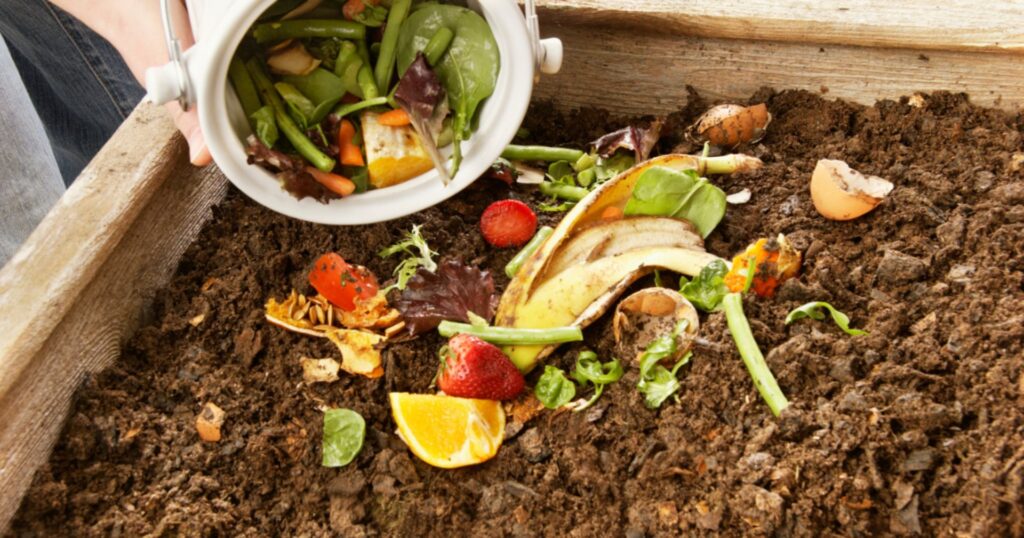In today’s world, where environmental concerns are at the forefront of global discussions, sustainable certifications have gained immense importance. They serve as valuable tools to identify products and businesses that adhere to rigorous sustainability standards and practices.
As a company working in the sustainability industry, Origin knows how important sustainable certifications are in fighting greenwashing and gaining a trustworthy reputation. Here is our guide to sustainable certifications, featuring organizations that handle compostability, forestry, and sustainable practices.
- What is a sustainable certification?
- Key elements of sustainable certifications
- Benefits of sustainable certifications
- Sustainable Certifications
- Why trust Origin Sustainables?

What is a sustainable certification?
Environmental concerns and social responsibility have become a significant part of our everyday lives, especially when it comes to consumer culture. But with greenwashing on the rise, it’s become difficult to tell if a product or service is truly green.
This is where sustainable certifications come in. They play a crucial role in promoting and validating environmentally friendly products and services. These certifications provide a standardized framework for assessing and recognizing organizations committed to sustainability. They’re an official recognition that a product or service meets specific criteria, standards, or guidelines.
Sustainable certifications are typically set by reputable third-party organizations, government bodies, or industry associations that specialize in sustainability assessment and verification.
Learn More: Greenwashing: Everything You Need to Know
Key Elements of Sustainable Certifications
Sustainable certifications are based on a well-defined set of criteria that assess various aspects of sustainability. While specific requirements will vary depending on the certification program, some common elements include:
Environmental Impact: Certifications will evaluate an organization’s efforts to reduce its environmental impact. This includes analyzing their energy consumption, water management, and carbon emissions.
Social Responsibility: Sustainable certifications will consider an organization’s commitment to fair labour practices, employee welfare, diversity and inclusion, community engagement, and ethical sourcing. They may also examine health and safety standards and compliance with human rights principles.
Supply Chain Management: Many sustainable certifications focus on the sustainability of a product or service throughout its entire supply chain. This includes assessing the environmental and social impacts of sourcing raw materials, production processes, distribution, and disposal.
Performance Measurement: Sustainable certifications often require ongoing monitoring and reporting of key performance indicators to ensure continuous improvement and compliance with established sustainability standards. Regular audits or recertification processes may be conducted to maintain the credibility and relevance of the certification.

Benefits of Sustainable Certifications
Using products with sustainable certifications offers numerous benefits, such as:
Market Advantage: Sustainable certifications enhance the marketability and reputation of a business, product, or service by demonstrating a genuine commitment to sustainability. They can differentiate products from their competitors and attract environmentally conscious consumers.
Consumer Trust: Certifications provide consumers with a reliable way to identify products and services that align with their sustainability values. They foster trust by assuring consumers that certified products have met rigorous sustainability standards and undergone independent verification.
Risk Mitigation: Sustainable certifications help organizations identify and address potential environmental and social risks within their operations and supply chains. By adopting sustainable practices, businesses can reduce their exposure to regulatory, reputational, and operational risks.
Are sustainable certifications a guarantee that a product is green?
While sustainable certifications play a vital role in promoting environmentally friendly practices, it is important to understand that they do not guarantee that a product or service is entirely green or sustainable.
Certifications provide a level of assurance, but should be viewed as only a part of a broader picture and not the sole determinant of a product’s environmental impact.
Understanding the limitations of sustainable certifications
Scope and Focus: Sustainable certifications often focus on specific aspects of sustainability, such as compostability or material sourcing. While a certified product may excel in one area, it may still have shortcomings in another. It’s crucial to consider the holistic sustainability profile of a product rather than relying solely on a single certification.
Evolving Standards: Sustainability is a dynamic field, and certification standards are always evolving. What may be considered sustainable today might not meet future expectations. Staying informed about latest developments in sustainability will help determine if a product’s certifications align with current best practices.
Variations in Certification Programs: There are numerous sustainable programs available, each with its own criteria and standards. The rigor and comprehensiveness of these programs can vary significantly. Some certifications may have stringent requirements and rigorous assessment processes, while others may have more lenient criteria.
Considering additional factors
Transparency and disclosure: While certifications provide a certain level of transparency, it’s important to look for products that are transparent about their sustainability efforts beyond certifications. A company can use a certification to highlight a single sustainable facet of their products, while hiding their poor practices in other aspects of their business.
Life Cycle Assessment: Assessing the entire lifecycle of a product, from raw material extraction to disposal, provides a comprehensive understanding of its environmental impact. But many certifications are specific with what they verify, and don’t consider the broader impacts beyond the immediate production process.
Independent Verification: Some certifications require third-party verification to ensure the certification process is unbiased and thorough. Certifications lacking external auditors may be a red flag.
Sustainable Certifications
Here is a list of some of the most recognized sustainability certifications. And if there’s an asterisk next to the organization, Origin’s products are certified by them!
Forestry Certifications
Forest Stewardship Council*

Also known as: FSC
What it certifies: Wood, paper, and bamboo products
Established in 1993, the Forest Stewardship Council stands as one of the most recognized and respected certifications worldwide when it comes to sustainable forestry practices. The FSC’s primary mission is to promote environmentally appropriate, socially beneficial, and economically viable forest management worldwide.
The organization strives to ensure that forests are managed sustainably, conserving biodiversity, respecting indigenous peoples’ rights, and providing long-term socioeconomic benefits for local communities.
They also provide fair employment opportunities, ensure workers’ rights and safety, and support social programs that benefit communities.
Learn More: The Consequences of Deforestation
Rainforest Alliance
What it certifies: Forestry, food, beverage products, and more
The Rainforest Alliance certification is a globally recognized standard that promotes sustainable practices, conservation of biodiversity, environmental stewardship, and social responsibility across a variety of industries. Their primary focus is agriculture and forestry.
The certification is awarded to products or companies that meet the organization’s strict standards for environmental, social, and economic sustainability. To obtain certification, companies undergo assessments by independent auditors who evaluate their compliance with the comprehensive criteria.
Sustainable Forestry Initiative
Also known as: SFI
What it certifies: Wood, paper, forestry products
The Sustainable Forestry Initiative is a leading certification program that promotes responsible forest management and sustainable practices in North America. The certification assures that forests are managed in an environmentally sound, socially responsible, and economically viable manner.
SFI-certified products and organizations must undergo independent audits to verify their compliance with the SFI standards. The certification encompasses a variety of forest-related activities, including timber harvesting, reforestation, conservation, and community engagement.
Biodegradability & Compostability Certifications
Biodegradable Products Institute*
Also known as: BPI
What it certifies: Biodegradable products
The Biodegradable Products Institute is an organization that tests, certifies, and promotes environmentally conscious products. The BPI certification is the only third-party certification in North America for the American Society for Testing and Materials.
BPI is a reliable indicator that a product meets biodegradability and compostability standards. The process of certifying a product or package with BPI is comprehensive, involving multiple steps that can take many months to complete.
Companies seeking certification must submit their products to independent testing laboratories that follow established testing protocols. These tests assess the product’s ability to break down into natural elements within a specific timeframe under composting conditions.
Learn More: Biodegradable versus Compostable: What’s the difference?
Composting Manufacturing Alliance*

Also known as: CMA
What it certifies: Compostable products
The Composting Manufacturing Alliance is dedicated to advancing sustainable composting practices by fostering collaboration and innovation among manufacturers, suppliers, and industry stakeholders.
CMA provides consumers and businesses with credible assurance that a product meets recognized standards for biodegradability and compostability. It eliminates greenwashing by ensuring that products have undergone thorough independent testing and evaluation.
Their testing ensures that a product is fully compatible with industrial composting facilities. The products can then break down efficiently and contribute to the production of high-quality compost.
Sustainable Practices Certifications
Société Générale de Surveillance*
Also known as: SGS
What it certifies: Agriculture, food, construction, manufacturing, and more
With a rich history spanning over a century, Société Générale de Surveillance has established itself as the global benchmark for sustainability, quality, and integrity. SGS provides a diverse range of certification services across multiple sectors.
SGS assesses compliance with regulations, industry best practices, and internationally recognized standards, enabling businesses to demonstrate their commitment to quality, safety, and sustainability. This certification supports organizations in enhancing their performance, risk management, and achieving sustainable growth.
International Standards Organization*

Also known as: ISO
What it certifies: Companies/organizations
The International Standards Organization is a globally recognized body that develops and publishes international standards across various industries and sectors. The ISO certification provides businesses with a framework for demonstrating their adherence to industry best practices and environmental sustainability.
Their process validates an organization’s compliance with specific set standards. It also involves an independent assessment of an organization’s practices, processes, and systems to ensure they meet the requirements.
However, it’s important to note that ISO does not perform certification itself. This is performed by external certification parties.
Why trust Origin Sustainables?
For over 30 years, Origin Sustainables has been dedicated to minimizing the ecological impact of disposable products. We prioritize our responsibility to the environment and take pride in our commitment to sustainability.
Sustainability is our soul. We’re proud of all our certifications and keep up to date with any regulation changes that are happening within each organization.
To compile this list, we chose organizations that we’re familiar with, are reputable, and certify products that are truly sustainable.
Learn More: Why Choose Origin Sustainables?



